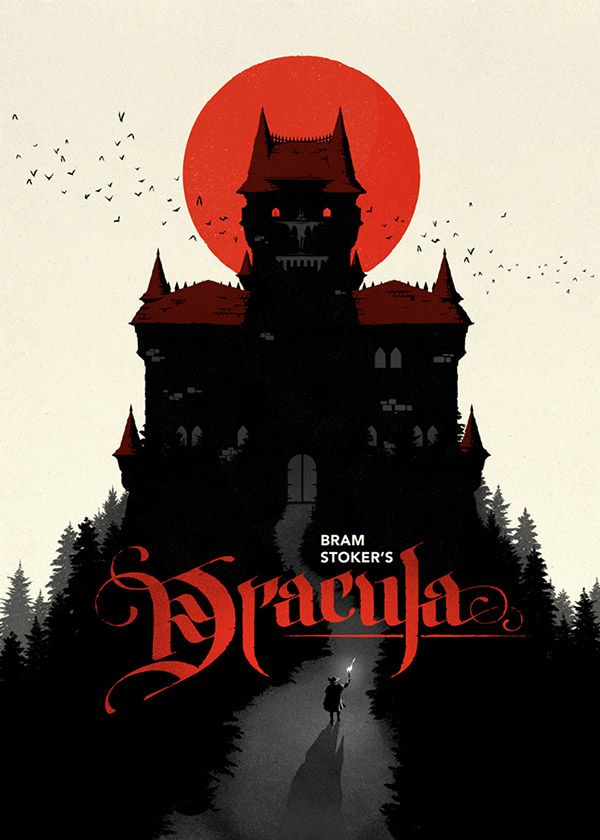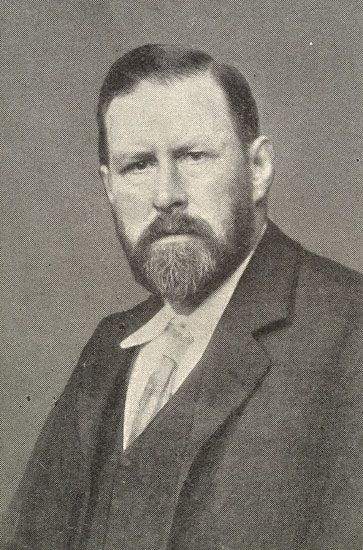Book Review on Bram Stoker’s Dracula

Dracula begins with Jonathan Harker, a young English lawyer, recounting his journey to Transylvania on a work assignment. En route, frequent travellers, hoteliers and peasants warn him from going but he pays no heed. Jonathan is relieved to find that upon arrival Dracula is both well-educated and hospitable, but he soon learns that things are not as they seem and he discovers he has become a prisoner in the castle.
Harker realises that the count has supernatural powers and evil ambitions. He is nearly attacked by three beautiful and seductive vampires – it is clearly time to escape!
Meanwhile, in England, Harker’s fiancée, Mina, and her friend Lucy. correspond frequently. Lucy accepts Arthur Holmwood’s proposal after reluctantly turning down two other suitors. The two get together in Whitby where they see a Russian ship wrecked upon the shore. If only they new that Dracula had shape-shifted on the boat and jumped off as a large dog, having killed the entire crew.
Things continue. Lucy sleepwalks and becomes pale and ill after being found in a cemetery … she also has two strange marks on her throat that no one could explain. We now nip back to Harker who, has escaped, but has suffered brain fever and is being tended to by nuns. Mina, his fiancee goes to help him recover and Van Helsing (an eminent professor) figures out that vampire work is at play. Several garlic cloves and a few blood transfusions later, there is hope that Lucy may survive, but that hope is short lived.
And on the book goes, with a rollicking good storyline, that J.K. Rowling would be proud of. We all know what ultimately happens to Dracula, but before then the book focuses extensively on the death of the ‘undead’ Lucy, who has herself become a vampire. This in fact, seems to get far more attention than the death of Dracula himself. Had Bram Stoker perhaps reached his wordcount for payment and so didn’t linger over Dracula’s death, or had he just run out of steam ….
The story is plot driven with great use of symbolism and motif. I’ve never actually seen any movie adaption, but the number out there is testament to the quality and enduring appeal of Bram Stoker’s Dracula. It deserves its place as a classic in the gothic horror genre.
Book Club Questions on Bram Stoker’s Dracula
Who is your favourite character and why? Discuss.
Discuss what you thought the most frightening event or series of events in Dracula. What made it so frightening?
We never hear from Dracula first hand in the book, i,e. he doesn’t share a diary entry or letter. Why do you think Stoker denied him his own narrator’s voice? What is the effect?
Lucky Lucy receives three marriage proposals in one day. Why do think she chose to accept Arthur and not the other two?
To what extent does Dracula conform to the tropes of vampires that you are aware of?
The reader never learns exactly how Jonathan escaped. Discuss what you think happened?
What stereotypical views of men and women are presented in the book? Does Stoker ever question the stereotypes? If so how and what is the effect on the reader?
Dracula and Frankenstein’s are often discussed together, yet they were published almost 80 years apart. Why do you think this is the case? What are the similarities and differences between the two books?
Dracula was based on a real historical figure called Vlad the impaler. Share what you know about the history of him and Dracula’s creation.
Why did Dracula have to send Transylvanian soil to England.
Dracula came to Whitby on a Russian ship and killed the crew en route! (Who’d want to be in that boat?) Have you visited Whitby? What do you think knowing the location of where supposed fictional events occured adds to your reading of the novel?

Book Club Questions on Bram Stoker’s Dracula (if you haven’t read the book!)
Legends of vampires have existed for centuries? Why do you think this is the case?
Who would you prefer to meet – a vampire, werewolf or regular ghost? Discuss who you think you could most easily befriend? (Note, this is a deliberately silly question.)
Dracula is, by and large, a novel based on diary and letter accounts, shared bewteen the characters. What are the advantages and disadvantages of writing a novel in letter form?
You may not have read Dracula, but you will know about vampires and have the gist of the story. If you were casting Dracula in a film, who would you choose to play Dracula?
Dracula was written in 1897, so inevitably the style of writing and vocabulary is a little antiquated. Would you be more inclined to read a book that was considered a classic, or would you be put off by the time lapse between it being written and now?
Personal Response to Bram Stoker’s Dracula
I listened to Dracula, rather than reading it from the page, which I think completely changed my experience of the text. Those in my bookclub who’d read it said that they found the opening passage and the build up to Lucy’s death full of suspense and horror. Listening to the text, it just felt antiquated and not so believable. Why, for example, did Jonathan keep going to Count Dracula’s castle, when every single local person warned him against it. The penny seemed to drop very slowly for him!
What I did find interesting was Dr. John Seward’s role in the ‘lunatic asylum’. I’d love to know more about the Victorian’s attitude to mental illness and listening to this story has inspired me to investigate the topic and look at the timeline of the novel in relation to the development of humane treatments of mental health illnesses.
The other area my interest was piqued and, I guess, amused by was how sexist the language and the attitudes expressed in the book are. Lucy, many of my bookclub friends’ favourite character, becomes a voluptuous temptress having been bitten by Dracula, and poor Arthur doesn’t know what to do with himself – quite different to the portrayal of her before she was attacked!
Lots to think about and fascinating to see the development of character and the fascination of the Victorians with horror – did I enjoy it? Yes.